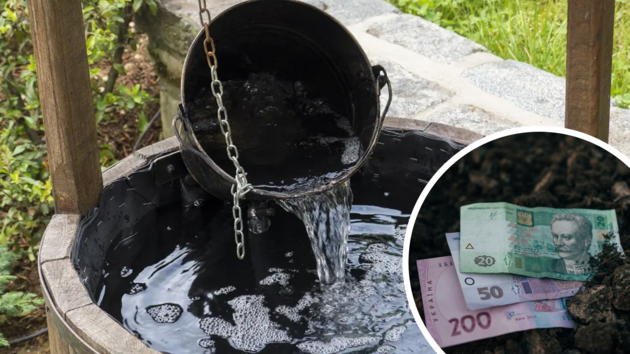Farmers who practice animal husbandry plan to increase production at the expense of the environment, and the government covers for them

For years, no one questioned the quality of water from a spring or well. Unfortunately, this is no longer the case – not everywhere, but in many regions of Ukraine there are nitrates in the well water. And the closer the well is to a large agricultural enterprise, the worse the condition of the water in it.
Meanwhile, the government announces a two-fold increase in animal husbandry in the coming years and, at the same time, reduces water quality monitoring in Ukraine. It’s time to worry.
Ukraine ensures the food security of the whole world both in crop and livestock production. But what does this mean for people? Of course, we understand that these are additional funds for the budget, jobs, and development. But at the same time, intensive farming like ours has a mostly negative effect on the quality of the environment, causing soil degradation, deterioration of their quality, loss of biodiversity, and pollution. Of course, we know that there are conscientious farmers who care about the health of the soil and the environment, but unfortunately, there are very few of them on a national scale, and the size of their “organic” farms is simply incomparable to the huge production capacities of large agricultural producers.
For clarity, we can take a look at infographic 1.
Statistics generally show that animal husbandry has declined compared to the 90s of the last century, even a few years ago Ukraine was one of the top chicken exporters in the world. Regarding pork, the situation is also similar: according to 2021 data, Ukraine ranked 20th in the world in the pork trade market. And if you look at the map of the Association of Pig Breeders of Ukraine, there are many pig farms on the territory of Ukraine. In addition, the new strategic plans of the Ministry of Agriculture already plan to double meat production over the next ten years.
Of course, from an economic point of view, these plans can only be welcomed, but environmentalists would like details about what will be the impact on the environment, in particular on water, after such a doubling.
What is the risk of large-scale agricultural production
Unfortunately, the state in general and the specialized ministry in particular are not very interested in how such sectors of the economy affect people’s quality of life. The most reliable data can be obtained only by constant monitoring of the state of the environment or in communication with local residents, and in Ukraine this is assessed rather infrequently. For example, groundwater monitoring is not growing (like livestock farming), but on the contrary, it is only declining. According to the 2021 National Drinking Water Quality Report, the number of inspections of mine wells (the highest level of groundwater that is most affected by economic activity) has almost halved since 2019 and continues to decrease gradually every year.
In addition, according to our data, monitoring of the quality of groundwater, which should be carried out by the State Geodesy, has been completely suspended.
Ecodia conducted its own public monitoring of water quality in wells and received disappointing results. In particular, 44% of the tested wells were found to have excessive nitrate content. In addition, in 2021, Ecodia made a map of communities in which conflicts arose due to the impact of industrial livestock complexes on the environment. And this card can be updated again and again (see infographic 2).
The last such vivid example of a conflict with a local pig farm occurred in the Poltava region, where representatives of the farm took tons of manure to an unprepared plot of land. This manure was washed away with the rains to the Psel River and to the gardens of local residents.
Together with the local residents, we checked the water quality in the wells of the nearest villages, and we recorded the highest concentration of nitrates right next to the river, where all the manure flowed. In three of the four samples, nitrate content was exceeded: 64, 141 and 203 mg/l, and in the fourth the indicator was 45 mg/l, closely approaching the upper limit of 50 mg/l.
Unfortunately, there are quite a lot of such stories, and most often they end in favor of polluting companies, and people’s health and the state of the environment become victims of their influence. But can we expect any changes and how to change it all? European integration should play a huge role here.
How to fight water pollution in the EU
Since 2017, Ukraine began to more actively adapt national legislation to European legislation, which should affect agricultural production as well. In particular, an environmental impact assessment procedure was adopted to prevent such a negative impact of the activity on the community. In addition, there are two separate EU directives that are important to adopt qualitatively: the Nitrates Directive and the Industrial Emissions Directive.
We at Ecodia focus our work on the issue of the Nitrates Directive, which is directly related to the prevention of water pollution and which applies to farmers regardless of farm size. Within the framework of this directive, an important part is the establishment of monitoring of the state of water resources, both surface and underground, in order to control the dynamics of pollutants, including nitrates. In addition, an important part of this directive is the training of farmers on how to increase the efficiency of their operations and at the same time reduce the negative impact on the environment. For example, the directive defines how to properly store manure to prevent water pollution and how to use it efficiently in the farm.
In Ukraine, unfortunately, the implementation of the Nitrate Directive is taking place very slowly.
Over the past six years, it was possible to adopt two orders that settled the issue:
1) determination of zones vulnerable to accumulation of nitrates;
2) code of best agricultural practices.
However, these norms remain on paper. The previous deadlines for the implementation of these documents have long passed. The deadline for development of management plans for each river basin is also approaching. In December 2023, these plans will undergo a strategic environmental assessment involving the public, including the Nitrates Directive. After all, zones vulnerable to nitrate pollution are part of these plans and should be integrated into further monitoring plans, measures, etc.
If the directive is so good, why is its implementation so slow? This issue is at the limit of the powers of the Ministry of Environment and the Ministry of Agrarian Policy. They are still at the stage of determining the zones in which there are risks of leaching of fertilizers and manure. Ministries are struggling, because for this they need water monitoring data, which they themselves decided to reduce. Therefore, there is not enough data. There is also a lack of desire to find a common solution.
Currently, it is much easier for agencies to live in a world where there is no monitoring data, which means there are no problems and obstacles for increasing agricultural production without any codes and best agricultural practices.
We hope that in the process of European integration, not only economic, but also ecological and social development of the country will become important. The well-being of citizens does not consist in the fastest development of the economy at the expense of the health of people and the environment, but in the balance between these three components.
Read this article in Ukrainian and russian.
Please select it with the mouse and press Ctrl+Enter or Submit a bug













 Login with Google
Login with Google